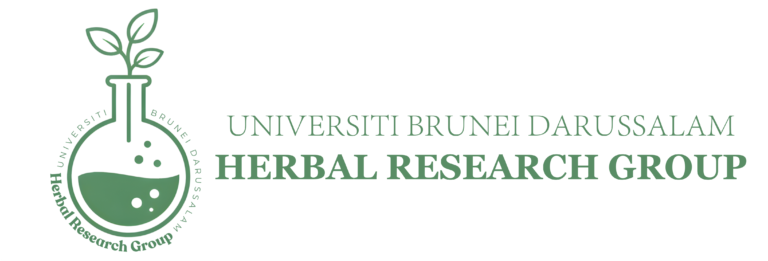On the 6th of October 2021, the Herbal Research Group hosted its Fourth Herbal Research Seminar Series 2021 online via Zoom. Assoc. Prof. Dr. Mark Petalcorin was invited as the speaker for the seminar where he presented an insightful lecture on “The Use of Model Systems in Herbal Research”. The event welcomed a total of 65 participants including staff and students from UBD, IBTE, UNISSA, the Forestry Department, Politeknik Brunei, International Islamic University Malaysia, Management and Science University (Malaysia), Quest International University (Malaysia) and University of Science, Malaysia.

The seminar began with Dr. Mark presenting the various factors researchers must consider when deciding on the approaches to be taken while conducting scientific studies on herbal plants, in terms of plant material collection and preparation, extraction solvent and methods, mode of sample fractionation, and structure identification and elucidation. Dr. Mark then showcased several bioassays that can be designed and adopted to assess biological activities as well as toxicities of bioactive compounds which include in vitro, in vivo and ex vivo systems.

As an example of an ex vivo system, Dr. Mark shared that his research team was able to use isolated rat aorta in an organ bath study to determine the anti-hypertensive vasodilatory actions of Gynura procumbens (“Sambung Nyawa”). The therapeutic action was mediated by kaempferol-3-O-rutinoside (a flavonoin found in G. procumbens extracts) which was shown to affect the M3 and M2 cholinergic receptors of the aorta, with and without endothelium respectively.

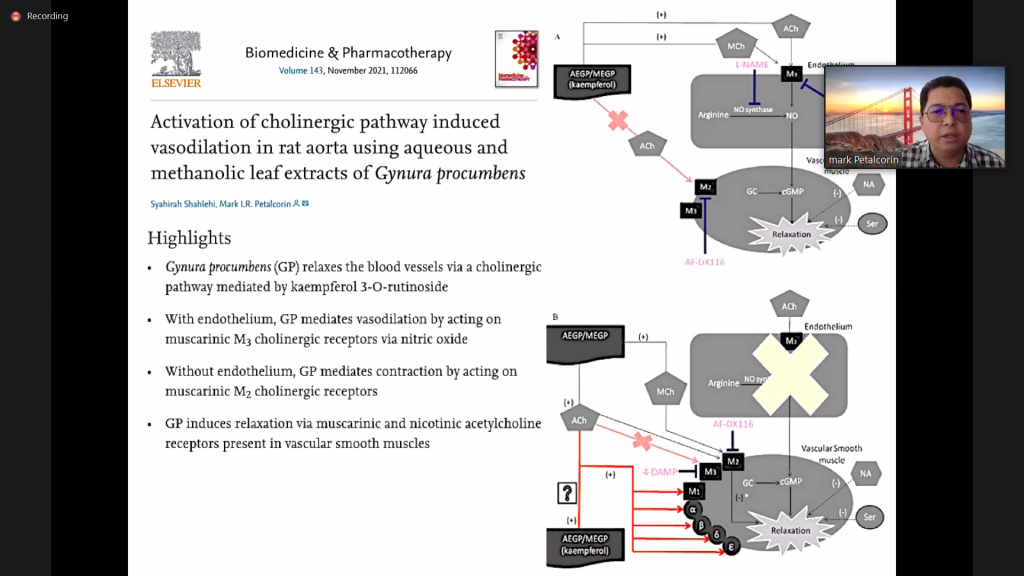
He also highlighted that high throughput screening with high biological relevance can be achieved by using C. elegans as an in vivo model system as the small nematode represents a whole animal with intact and metabolically active organ systems as well as modes of toxic actions that are similar to those of humans. He went on to described that C. elegans can also be genetically manipulated to investigate pathogenesis and the discovery of new therapeutic agent, such as for the treatment of epilepsy, diabetes, hypertension, gastric ulceration, cancer and even COVID-19. Dr. Mark then shared that his next research projects will involve the use of transgenic C. elegans to design COVID-19 biosensors for screening potential herbal compounds that could be used as treatment for COVID-19.
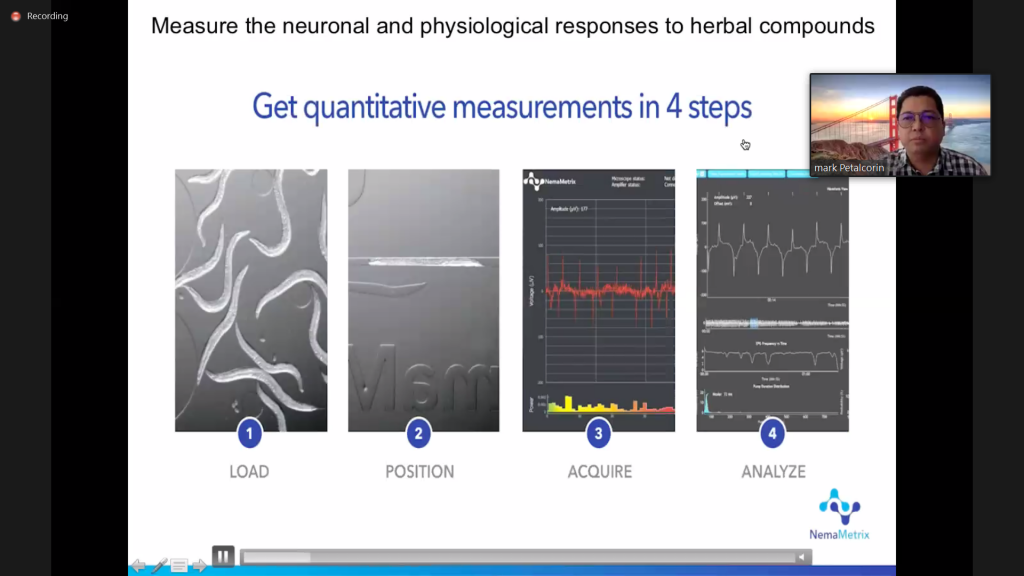
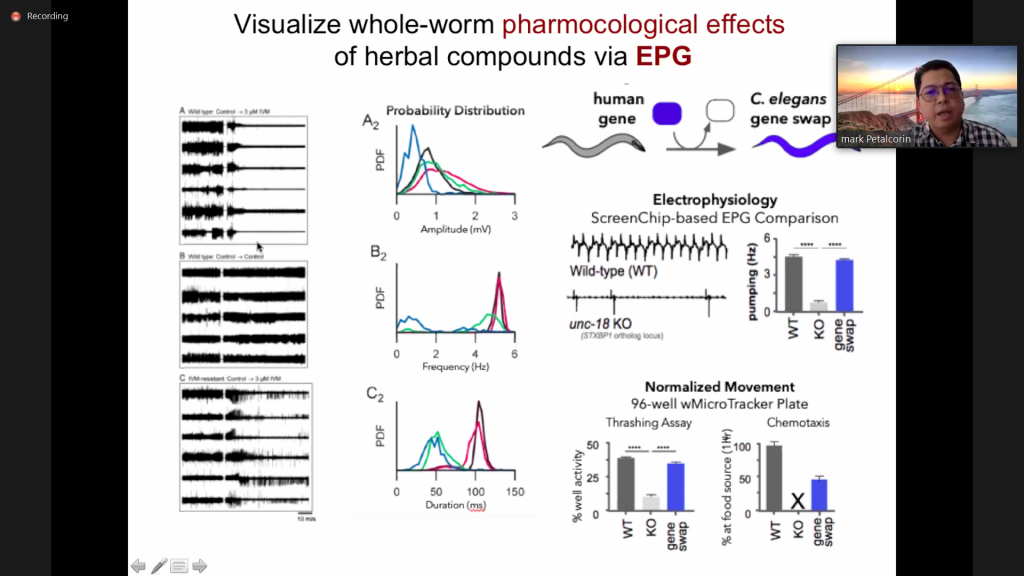
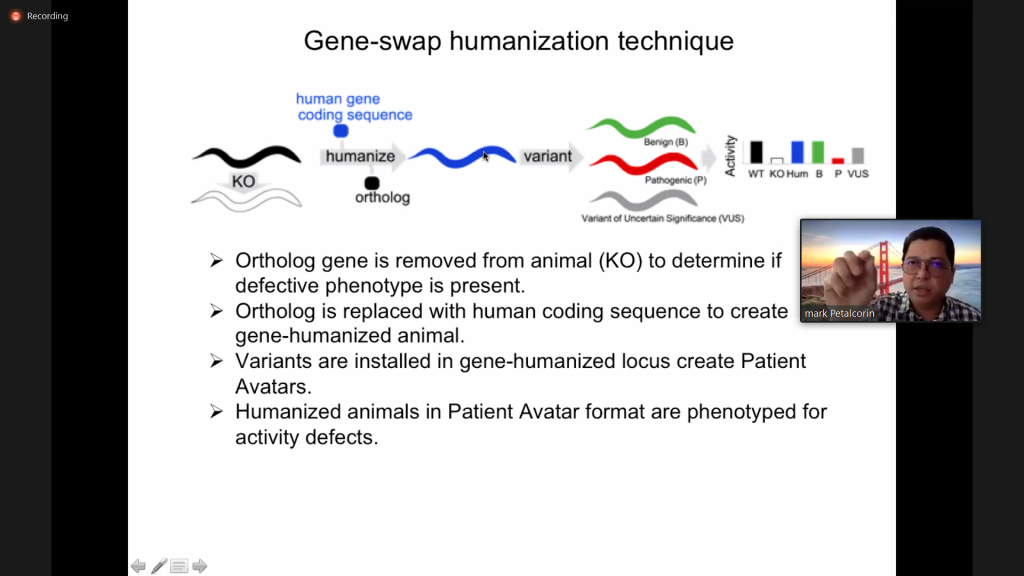
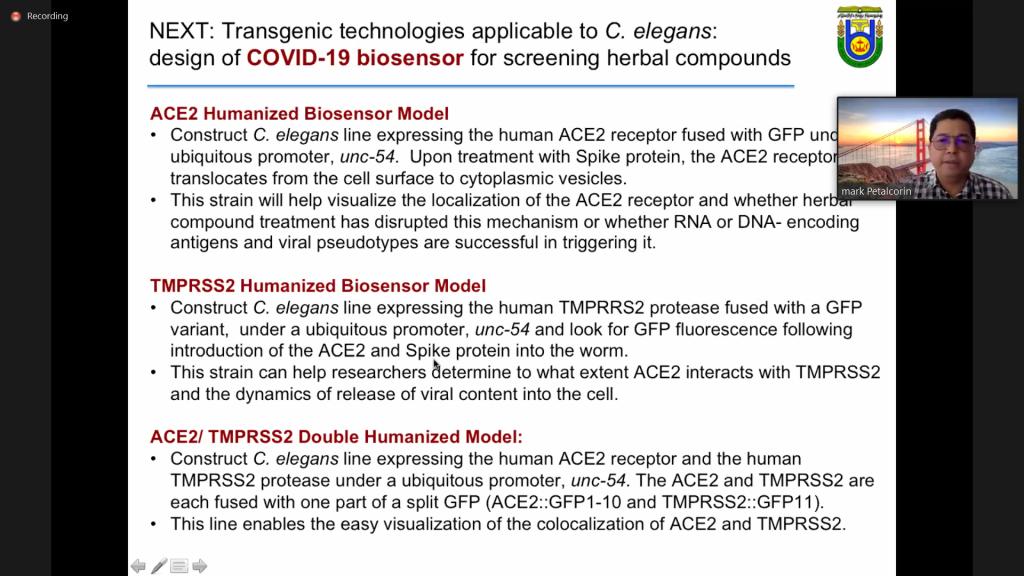
The seminar was followed by a question and answer session where Dr. Mark received several intriguing questions from the participants. The seminar series was then ended with a brief photo session with the speakers, organizers, and participants.
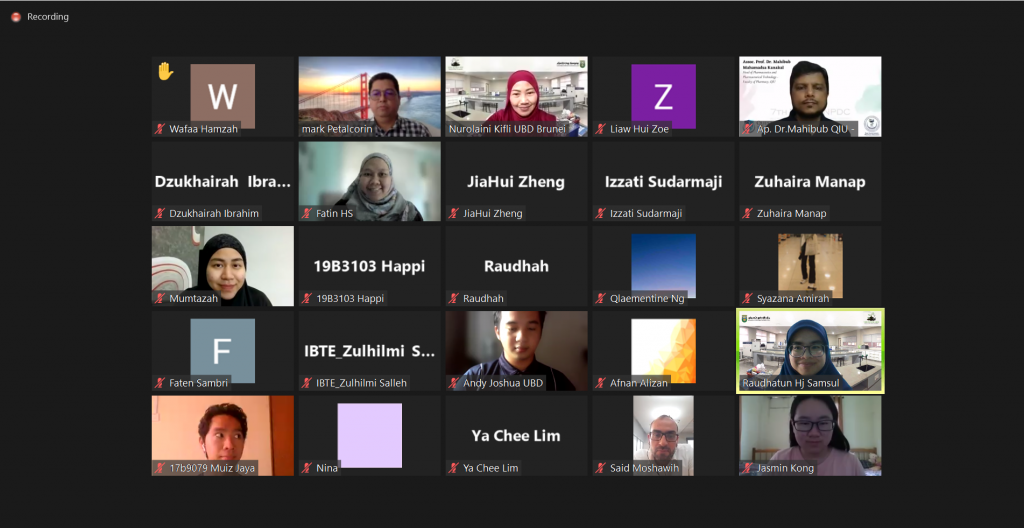
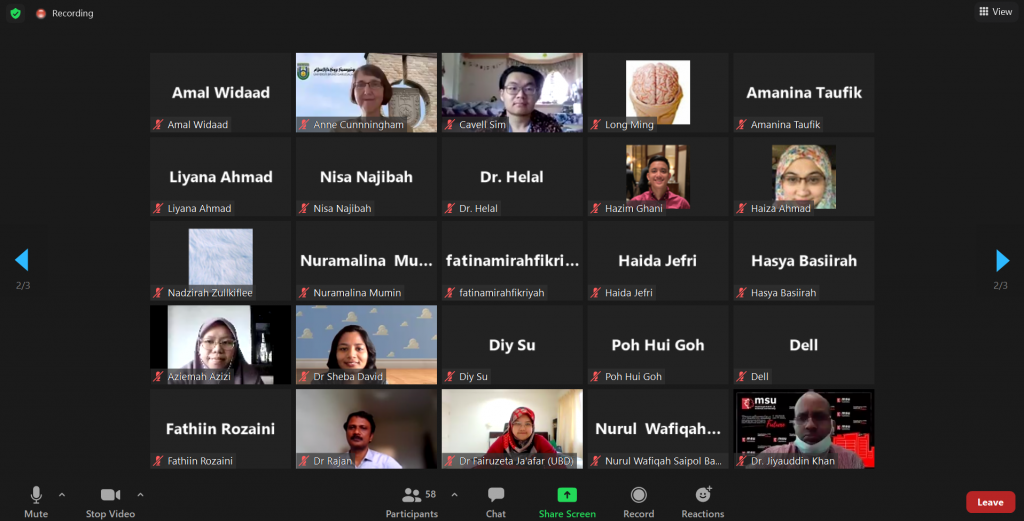
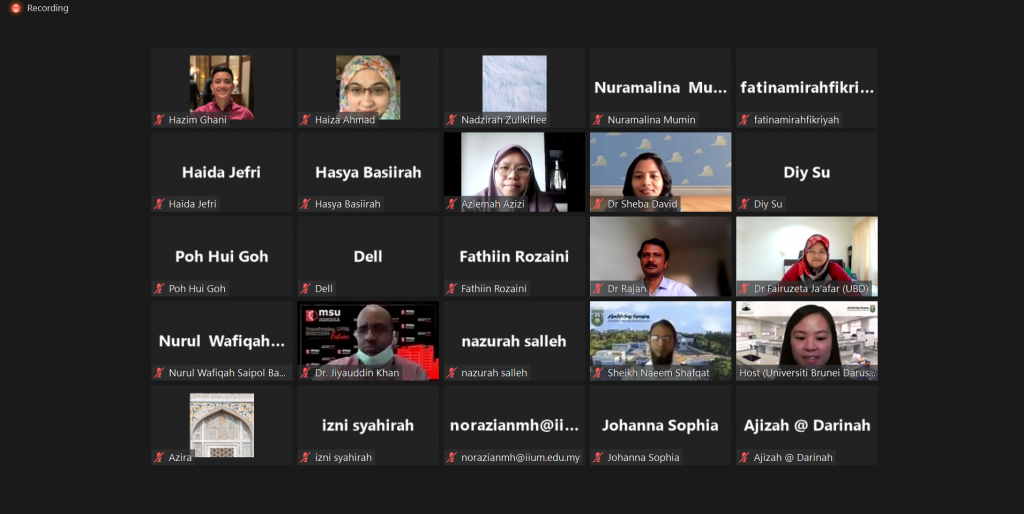
For the video recording of the 4th Herbal Research Seminar Series 2021, please see below:
